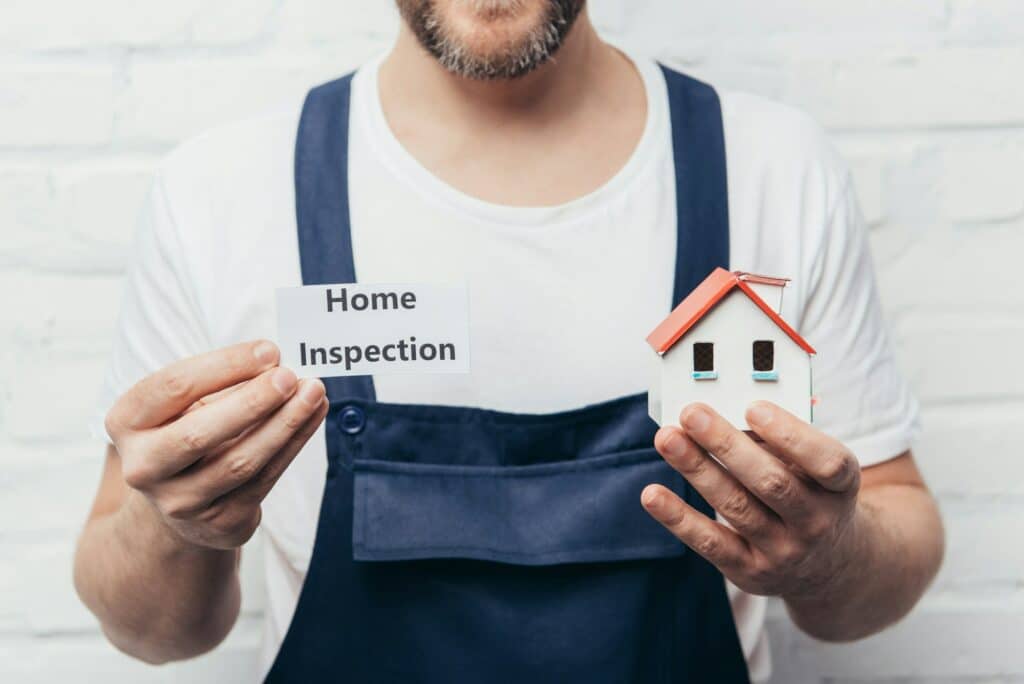When purchasing a new home, the excitement of finding the perfect property can often overshadow the importance of conducting a thorough home inspection. However, a home inspection is a critical step in the home-buying process that can save you time, money, and stress in the long run. Let’s explore the numerous benefits of a home inspection, from uncovering hidden issues to providing peace of mind and ensuring that your dream home doesn’t turn into a nightmare.
What Exactly is a Home Inspection
A home inspection is a comprehensive assessment of a property’s condition, typically conducted by a certified professional. It involves thoroughly examining the home’s structures, systems, and components, including the foundation, roof, plumbing, electrical systems, and more. The goal of a home inspection is to identify any existing or potential issues that could affect the safety, functionality, and value of the property. This process gives buyers a clear understanding of the home’s condition, helping them make informed decisions and negotiate repairs or price adjustments if necessary.
What a Home Inspector Will Look At
When you hire a home inspector, they will conduct a thorough examination of the property to assess its overall condition. This process involves inspecting various aspects of the home, from its structural integrity to the functionality of its systems. Understanding what a home inspector will look at can help you better prepare for the inspection and ensure that no critical areas are overlooked. Let’s delve into the specific components and areas a home inspector will evaluate during their assessment.

Home Structure
During a home inspection, one of the primary areas that the inspector will evaluate is the structure of the home and its foundation. This involves a detailed examination of the integrity and stability of the home’s framework, including the walls, beams, and columns. The inspector will look for any signs of structural damage, such as cracks, shifts, or settling in the foundation, which could indicate underlying issues. Assessing the foundation is crucial because any problems in this area can affect the overall safety and longevity of the property. Ensuring that the home’s structure and foundation are sound provides buyers with confidence in the home’s durability and helps them avoid costly repairs in the future.
Plumbing and Electric
When conducting a home inspection, the inspector will thoroughly examine the plumbing and electrical systems to confirm they are in proper working condition and adhere to current safety standards. For the plumbing, this involves inspecting pipes, fixtures, water heaters, and drainage systems for any signs of leaks, corrosion, or other damage that could pose future problems. The inspector will also evaluate the water pressure and overall efficiency of the plumbing system. On the electrical side, the inspector will scrutinize the wiring, circuit breakers, outlets, and electrical panels to identify potential hazards such as outdated or faulty wiring, overloaded circuits, or improper installations. This comprehensive assessment ensures that the home’s plumbing and electrical systems are safe, functional, and compliant with regulations, providing peace of mind for potential buyers.
HVAC
Another critical component that a home inspector will evaluate during a home inspection is the HVAC (Heating, Ventilation, and Air Conditioning) system. The inspector will assess the overall condition and functionality of the HVAC system, including the furnace, air conditioner, ductwork, and ventilation. They will check for any signs of wear and tear, improper installation, or potential safety hazards. Ensuring that the HVAC system is in good working order is essential for maintaining a comfortable and healthy living environment and avoiding costly repairs or replacements in the future. This evaluation helps buyers understand the efficiency and reliability of the home’s heating and cooling systems, contributing to informed decision-making and peace of mind.
Exterior
During a home inspection, the inspector will also carefully examine the exterior of your home to assess its overall condition and identify any potential issues. This includes evaluating the exterior walls, siding, paint, and other materials for signs of damage, weathering, or decay. The inspector will also check the condition of doors, windows, and trim to ensure they are properly sealed and functioning correctly. Additionally, they will inspect outdoor structures such as decks, porches, and fences for stability and safety. Assessing the exterior is crucial as it protects the home from environmental elements and contributes to its curb appeal and structural integrity.
Roof, Gutters, Window
As part of a home inspection, the inspector will meticulously evaluate the roof, gutters, and windows to confirm they are in optimal condition and free from potential problems. The roof will be scrutinized for any signs of damage, such as missing or broken shingles, leaks, and general wear and tear. The gutters will be examined for correct installation, blockages, and any indications of water damage or poor drainage that could impact the home’s foundation. Additionally, the inspector will assess the windows for proper sealing, functionality, and any signs of damage or inefficiency, such as drafts or fogging between panes. This thorough inspection of the roof, gutters, and windows ensures that these essential components of the home are well-maintained and capable of safeguarding the property from external elements.
Attic
The attic is another area that a home inspector will thoroughly examine during a home inspection. The inspector will check for proper insulation, ventilation, and any signs of water damage or leaks. They will also look for structural issues, such as weakened or damaged rafters and trusses, as well as any evidence of pest infestations. Additionally, the inspector will assess the overall condition of the attic’s electrical wiring and HVAC components, if present. Evaluating the attic is essential because problems in this space can often indicate larger issues within the home, such as roof leaks or inadequate insulation, which can affect energy efficiency and overall comfort.
The Benefits of a Home Inspection
A home inspection offers numerous advantages that can significantly benefit homebuyers. By identifying potential problems early on, a home inspection provides valuable insights into the property’s condition, ensuring that buyers are fully informed before purchasing. This process not only enhances safety but also helps in negotiating repairs or adjustments, ultimately protecting the buyer’s investment. Here are some of the specific benefits that make a home inspection an essential step in the home-buying journey.
Safety
A home inspection significantly enhances the safety of a property by identifying potential hazards that might not be immediately visible to the untrained eye. By thoroughly examining the structural integrity, electrical systems, plumbing, and other critical components of the home, the inspector can uncover issues such as faulty wiring, gas leaks, or structural weaknesses that could pose serious safety risks to the occupants. Addressing these problems before finalizing the purchase ensures that the home is safe for you and your family, providing peace of mind and preventing costly and potentially dangerous surprises down the line.

Reveals Any Illegal Installations or Additions
One of the most significant benefits of a home inspection is its ability to uncover any illegal installations or additions to the house. Ensuring that the property complies with local building codes and regulations is essential for safety and legality. Unauthorized modifications, such as unpermitted extensions, electrical work, or plumbing alterations, can pose significant safety hazards and may require costly repairs or legal action to rectify. By identifying these issues early on, a home inspection helps protect the buyer from potential liabilities. It ensures that the home meets all necessary standards, providing peace of mind and avoiding future complications.
It Can Provide You an Out
A significant advantage of a home inspection is that it can provide you with an “out” if the findings reveal severe previously unknown issues. Suppose the inspection uncovers major problems such as structural damage, extensive mold, or critical system failures. In that case, you may be able to back out of the purchase agreement without losing your deposit. This contingency can be a crucial safeguard, allowing you to avoid committing to a property that requires extensive repairs or poses safety risks, ultimately protecting your financial interests and peace of mind.
Provides Protection
A home inspection protects you by thoroughly evaluating the property and identifying potential issues affecting its safety, functionality, and value. This detailed assessment ensures that you are fully aware of the home’s condition before making a purchase, allowing you to make informed decisions and negotiate necessary repairs or price adjustments. By uncovering hidden problems, a home inspection safeguards your investment and prevents costly surprises down the line, ensuring that your new home is a secure and sound choice for you and your family.
Can Determine Deal Breakers
Evaluating a property through a home inspection can be crucial in identifying potential deal breakers that may affect its desirability and livability. For instance, uncovering major structural damage, extensive mold infestations, or failing systems requiring costly repairs can significantly influence the decision to proceed with the purchase. By highlighting these critical issues early in the process, a home inspection empowers buyers to make more informed decisions, potentially saving them from future financial burdens and ensuring that the home they choose aligns with their expectations and needs.
It Can Be a Negotiating Tool
A home inspection can be a powerful negotiating tool when issues are discovered. Suppose the inspection reveals problems such as structural damage, outdated systems, or necessary repairs. In that case, buyers can use this information to negotiate with the seller for a lower purchase price or request that the seller address the issues before the sale is finalized. This leverage ensures that buyers are not left shouldering the financial burden of unforeseen repairs, which can result in significant cost savings or improvements to the property. By highlighting these issues, a home inspection provides a basis for fair negotiations, protecting the buyer’s investment and ensuring they make a well-informed decision.

They Can Help You Protect Your Investment
By identifying potential issues early on, a home inspection helps protect your investment by ensuring that you are fully aware of the property’s condition before finalizing the purchase. This knowledge allows you to make informed decisions and negotiate necessary repairs or price adjustments, preventing unexpected and costly surprises down the road. Additionally, uncovering problems early can save you from investing in a property that may require extensive repairs, ultimately safeguarding your financial interests and providing peace of mind that your new home is a sound and secure investment.
Reveals the Bigger Picture
Conducting a home inspection offers the advantage of revealing the bigger picture of your potential home. It provides a comprehensive assessment of the property’s overall condition and identifies any underlying issues that may not be immediately visible. This thorough evaluation covers all major systems and components, from the foundation to the roof, giving you a clear understanding of the property’s strengths and weaknesses. By uncovering potential problems and areas that may require future attention, a home inspection ensures that you are well-informed about the actual state of the home, allowing you to make a more strategic and confident investment decision.
Can Provide Insight into Future Problems
By having a thorough evaluation of the property, a home inspection can provide valuable insight into any potential future problems that may arise. Inspectors can identify early warning signs of issues such as roof leaks, plumbing problems, or foundation cracks that, if left unaddressed, could lead to significant damage and costly repairs down the line. This forward-looking perspective allows buyers to anticipate and plan for maintenance needs, ensuring that they are not caught off guard by unexpected issues. By understanding these potential problems, buyers can make more informed decisions about their investment and take proactive steps to address any concerns before they escalate.
Finding Your Dream Home With Honey Tree Realty
At Honey Tree Realty, our team is dedicated to helping you find your dream home. We understand the importance of making informed decisions during the home-buying process, which is why we are committed to guiding you every step of the way. Once we’ve found the perfect property for you, we will ensure you are set up with a skilled home inspector to evaluate the home’s condition thoroughly. Our goal is to provide you with peace of mind and confidence in your investment so you can focus on enjoying your new home. Let us help you make your dream a reality with the support and expertise you deserve.